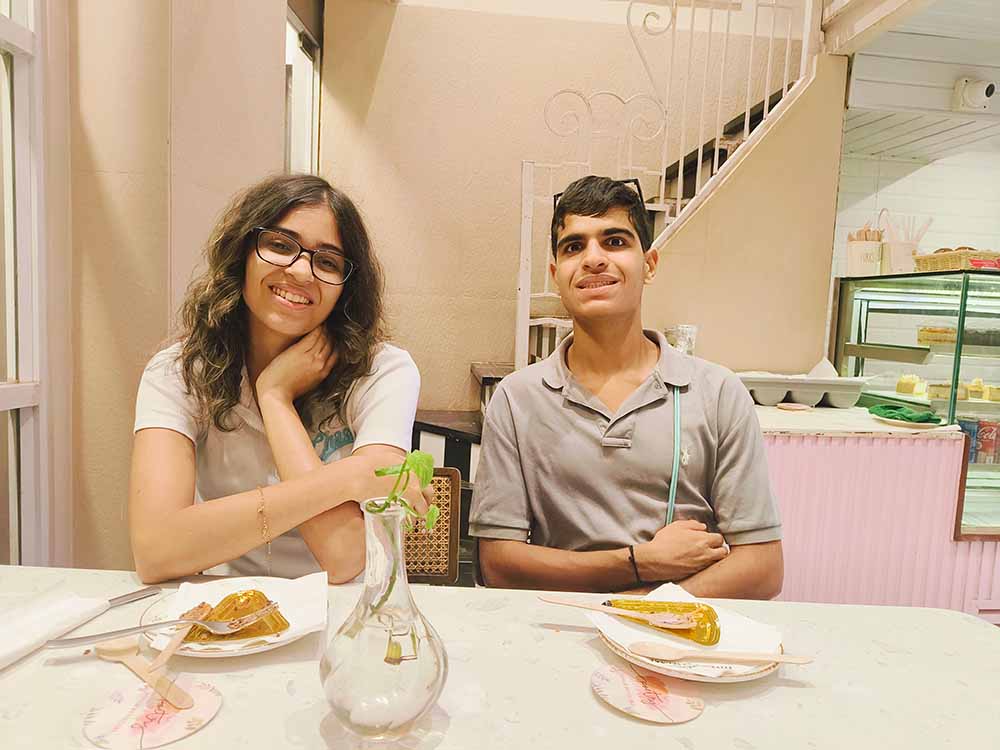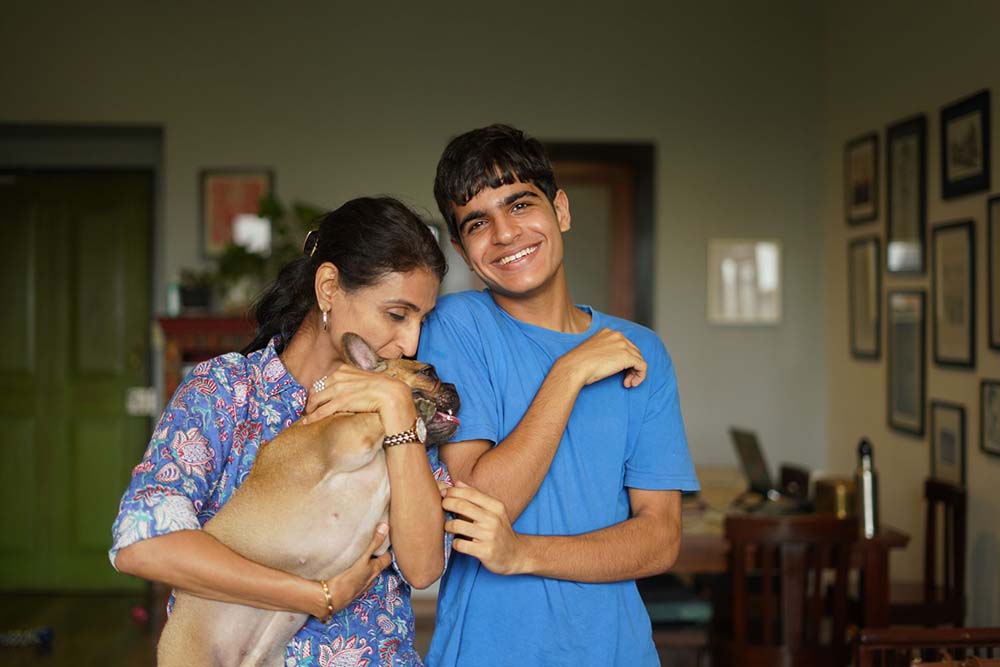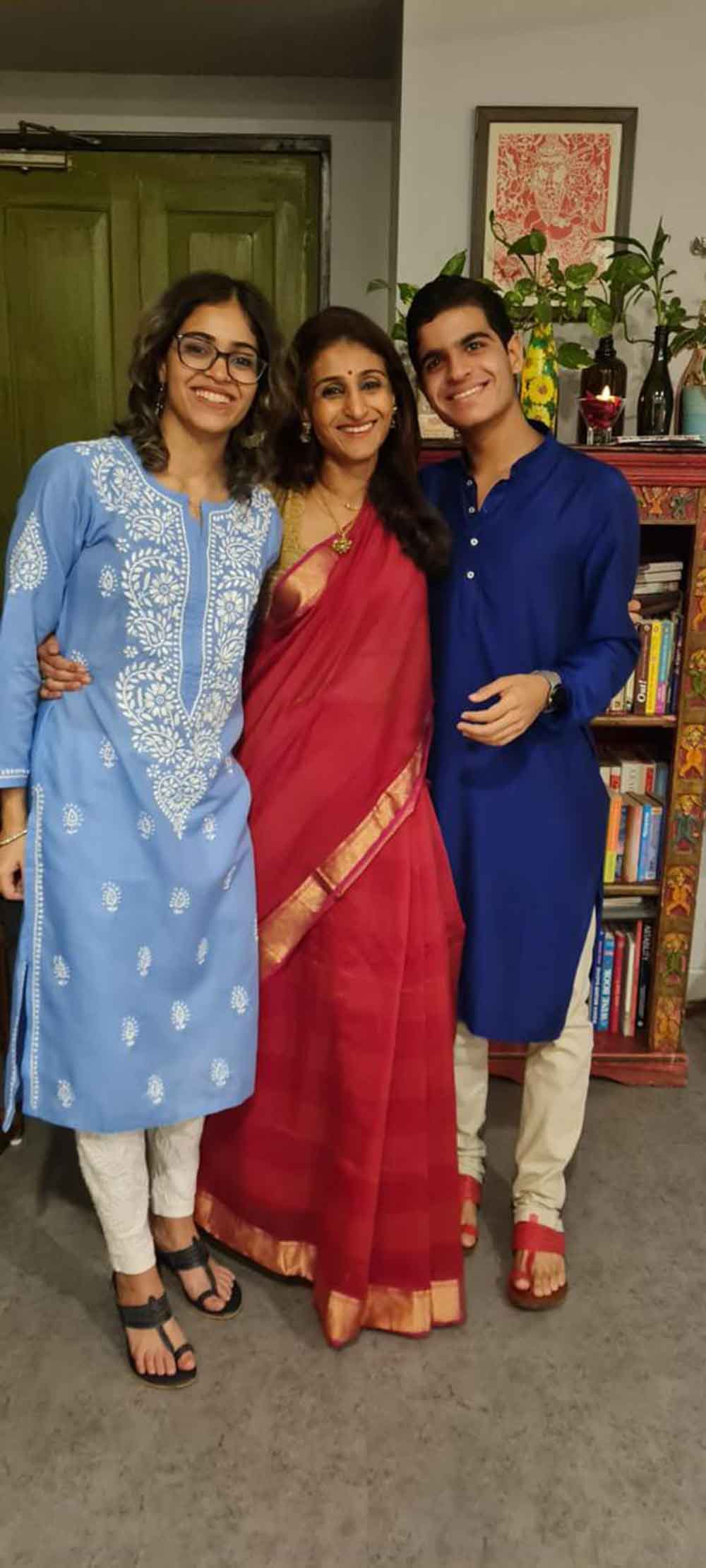Autism, the world's third most common developmental disability, presents unique challenges for individuals and their families, it affects an estimated 18 million people in India alone. According to ET Health World, approximately 1 per cent to 1.5 per cent of children aged 2 to 9 years are affected by Autism Spectrum Disorder (ASD), with many cases going undiagnosed or misdiagnosed due to a lack of basic services and awareness. This surge in autism cases underscores the critical need for increased understanding and support, particularly within families.
As the world observes World Autism Day, it's essential to not only raise awareness of the condition but also to emphasise the significance of fostering positive and supportive environments for individuals with autism and their families. Gopika Kapoor, author, Neurodiversity Consultant, and parent advocate, shares invaluable insights into navigating sibling relationships when one child is on the autism spectrum, drawing from her own experiences raising Vir and Gayatri, her twin children.

Understanding Sibling Reactions
Kapoor emphasises that siblings of individuals with autism often face a silent struggle, as discussions about the condition within the family are rare, particularly if they are younger. This lack of communication can lead to a sense of confusion and tension within the household. Siblings may perceive the stress and strain but remain unaware of its source, contributing to feelings of isolation and resentment. The imbalance of attention and energy directed towards the autistic sibling can further exacerbate these emotions, potentially leading to long-term mental health issues such as low self-esteem, depression, and anxiety.
Supporting Sibling Understanding and Acceptance
To foster a healthy sibling relationship, Kapoor advocates for honest and age-appropriate conversations about autism. “We told Gayatri about Vir’s autism when she was around seven years old. We asked if she had noticed that her brother was different from her and then told her it was because his brain was wired differently from hers, which made him behave the way he did - do note here, that the language we used was simple, which she could understand.” Kapoor underscores the importance of making oneself available to address any questions or concerns that may arise, reinforcing the sibling's significance within the family unit. Additionally, she recommends utilising resources such as children's books and movies that offer insights into autism from a sibling's perspective, providing relatable narratives for both understanding and empathy.

Encouraging Open Communication
Addressing feelings of resentment or jealousy requires proactive measures from parents. Kapoor draws parallels with the poignant novel "Wonder" by R.J. Palacio. ‘Wonder’ is the story of Auggie, a child with mandibulofacial dysostosis, and Auggie’s sister Via describes how Auggie is the sun, and she and her parents are the planets that revolve around him, implying that their lives, like those of most families who have two or more children, one of whom has any kind of disability, are centred around one person and their needs. “There have been moments when Vir’s needs have been put above Gayatri’s – at times when there is a big change and we need to get through it as seamlessly as possible without any anxiety or meltdowns. Later, she came and told me that she feels like “a planet”, and I immediately understood how she was feeling and gave her a little extra time and TLC.”
Acknowledging and validating the neurotypical sibling's emotions is paramount, without dismissing or silencing them. Kapoor advocates for active listening and empathetic responses, allowing siblings to express their feelings openly and without judgment. By creating a safe space for communication, parents can mitigate negative emotions and strengthen sibling bonds.

Accessing Support Networks
Recognising the need for additional support, Kapoor highlights community and online resources tailored specifically for siblings of individuals with autism. Initiatives like the Samarthya Foundation and Saarthi: Sibling Support Network India offer platforms for siblings to connect, share experiences, and access guidance from peers who understand their unique journey.
Navigating sibling relationships within the context of autism requires proactive communication, empathy, and support. By acknowledging the challenges faced by siblings, providing opportunities for understanding and acceptance, and facilitating open dialogue, families can foster strong and resilient bonds among siblings. Gopika Kapoor's experiences raising Vir and Gayatri serve as poignant examples of the challenges and opportunities present in sibling relationships within the autism spectrum. Vir and Gayatri's journey, under Kapoor's guidance, demonstrates the importance of understanding, communication, and support in nurturing positive sibling dynamics amidst the complexities of autism.